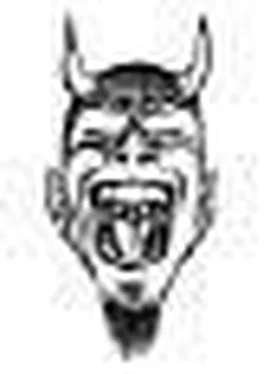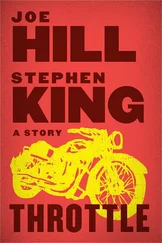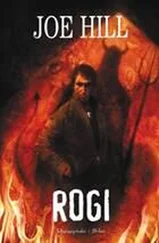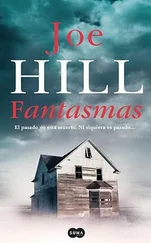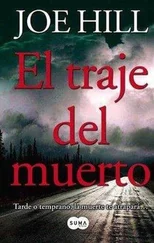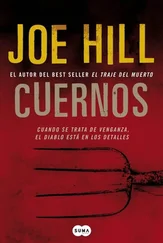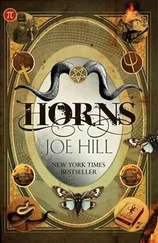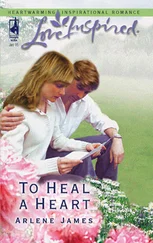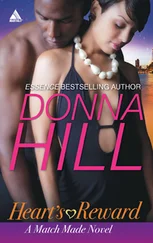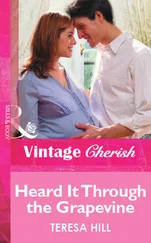When the gauze was gone, he pinned it tight with alligator clips. He used his toes to force off his boots. He pulled a sock over his right hand. He wound the other sock around his wrist and knotted it tight enough to slow, but not cut off, the circulation. He stared at the sock puppet of his hand and tried to think if he could learn to make chords without the index finger. He could always play slide. Or he could switch back to his left hand, like he’d done when he was a kid. At the thought he began to laugh again.
“Quit that,” Marybeth said.
He clenched his back teeth together, forced himself to stop, had to admit he sounded hysterical, even to himself.
“You don’t think she’ll call the cops on us? This old auntie of yours? You don’t think she’d want to get a doctor for you?”
“She’s not going to do that.”
“Why not?”
“We aren’t going to let her.”
Marybeth didn’t say anything for a while after that. She drove smoothly, automatically, slipping by people in the passing lane, then sliding back into the cruising lane, keeping at a steady seventy. She held the steering wheel gingerly with her white, wrinkled, sick left hand, and she didn’t touch it with the infected right hand at all.
At last she said, “How do you see all this endin’?”
Jude didn’t have an answer for that. Angus replied instead—a soft, miserable whine.
40
He tried to keep an eye on the roadbehind them, watching for police, or the dead man’s truck, but in the early afternoon Jude laid his head against the side window and closed his eyes for a moment. The tires made a hypnotic sound on the road, a monotonous thum-thum-thum. The air conditioner, which had never rattled before, rattled in sudden bursts. That had something of a hypnotic effect as well, the cyclical way the fans vibrated furiously and fell silent, vibrated and fell silent.
He had spent months rebuilding the Mustang, and Jessica McDermott Price had made it junk again in a single instant. She’d done things to him he thought only happened to characters in country-western songs, laying waste to his car, his dogs, driving him from his home, and making an outlaw of him. It was almost funny. And who knew that getting a finger blown off and losing half a pint of blood could be so good for your sense of humor?
No. It wasn’t funny. It was important not to laugh again. He didn’t want to frighten Marybeth, didn’t want her thinking he was drifting out of his head.
“You’re out of your head,” Jessica Price said. “You aren’t going anywhere. You need to calm down. Let me get something to relax you, and we’ll talk.”
At the sound of her voice, Jude opened his eyes.
He sat in a wicker chair, against the wall, in the dim upstairs hallway of Jessica Price’s house. He’d never seen the upstairs, had not got that far into her home, but knew immediately where he was all the same. He could tell from the photographs, the large framed portraits that hung from the walls of dark-paneled hardwood. One was a soft-focus school picture of Reese, about age eight, posing in front of a blue curtain and grinning to show braces. Her ears stuck out: goofy-cute.
The other portrait was older, the colors slightly faded. It showed a ramrod-straight, square-shouldered captain who, with his long, narrow face, cerulean eyes, and wide, thin-lipped mouth, bore more than a passing resemblance to Charlton Heston. Craddock’s stare in this picture was faraway and arrogant at the same time. Drop and give me twenty.
Down the corridor to Jude’s left was the wide central staircase, leading up from the foyer. Anna was halfway up the steps, with Jessica close behind her. Anna was flushed, too thin, the knobs of her wrists and elbows protruding under her skin and her clothes hanging loose on her. She wasn’t a Goth anymore. No makeup, no black fingernail polish, no earrings or nose rings. She wore a white tunic, faded pink gym shorts, and untied tennis sneakers. It was possible her hair hadn’t been brushed or combed in weeks. She should’ve looked terrible, bedraggled and starved, but she wasn’t. She was as beautiful now as she ever had been the summer they spent out in the barn working on the Mustang with the dogs underfoot.
At the sight of her, Jude felt an almost overwhelming throb of emotion: shock and loss and adoration all together. He could hardly bear to feel so much at once. Maybe it was more feeling than the reality around him could bear as well—the world bent at the edges of his vision, became blurred and distorted. The hall turned into a corridor out of Alice in Wonderland, too small at one end, with little doors only a house cat could fit through, and too big at the other, the portrait of Craddock stretching until he was life-size. The voices of the women on the stairs deepened and dragged to the point of incoherence. It was like listening to a record slow down after the record player has been abruptly unplugged.
Jude had been about to cry out to Anna, wanted more than anything to go to her—but when the world warped all out of shape, he pressed himself back into the chair, his heartbeat racing. In another moment his vision cleared, the hallway straightened out, and he could hear Anna and Jessica clearly again. He grasped, then, that the vision surrounding him was fragile and that he could not put much strain on it. It was important to be still, to take no rash action. To do and feel as little as possible; to simply watch.
Anna’s hands were closed into small, bony fists, and she went up the steps in an aggressive rush, so her sister stumbled trying to keep up, catching the banister to avoid a pratfall down the staircase.
“Wait—Anna— stop !” Jessica said, steadying herself, then lunging up the stairs to catch at her sister’s shirtsleeve. “You’re hysterical—”
“No I’m not don’t touch me,” Anna said, all one sentence, no punctuation. She yanked her arm away.
Anna reached the landing and turned toward her older sister, who stood rigid two steps below her, in a pale silk skirt and a silk blouse the color of black coffee. Jessica’s calves were bunched up, and the tendons showed in her neck. She was grimacing, and in that moment she looked old—not a woman of about thirty but one approaching fifty—and afraid. Her pallor, especially at her temples, was gray, and the corners of her mouth were pinched, webbed with crow’s-feet.
“You are. You’re imagining things, having one of your terrible fantasies. You don’t know what’s real and what isn’t. You can’t go anywhere like you are.”
Anna said, “Are these imaginary?” Holding up the envelope in her hand. “These pictures?” Taking out Polaroids, fanning them in one hand to show Jessica, then throwing them at her. “Jesus! It’s your daughter. She’s eleven.”
Jessica Price flinched from the flying snapshots. They fell on the steps, around her feet. Jude noticed that Anna still held one of them, which she shoved back into the envelope.
“I know what’s real,” Anna said. “First time ever, maybe.”
“Craddock,” Jessica said, her voice weak, small.
Anna went on, “I’m going. Next time you see me, I’ll be back with his lawyers. To get Reese.”
“You think he’ll help you?” Jessica said, her voice a tremulous whisper. He? His? It took Jude a moment to process that they were talking about him. His right hand was beginning to itch. It felt puffy and hot and insect-bitten.
“Sure he will.”
“Craddock,” Jessica said again, her voice louder now, wavering.
A door popped open, down the dark hallway to Jude’s right. He glanced toward it, expecting to see Craddock, but it was Reese instead. She peeked around the edge of the doorframe, a kid with Anna’s pale golden hair, a long strand of it hanging across one of her eyes. Jude was sorry to see her, felt a twinge of pain at the sight of her large, stricken eyes. The things some children had to see. Still—it was not as bad as some of what had been done to her, he supposed.
Читать дальше
